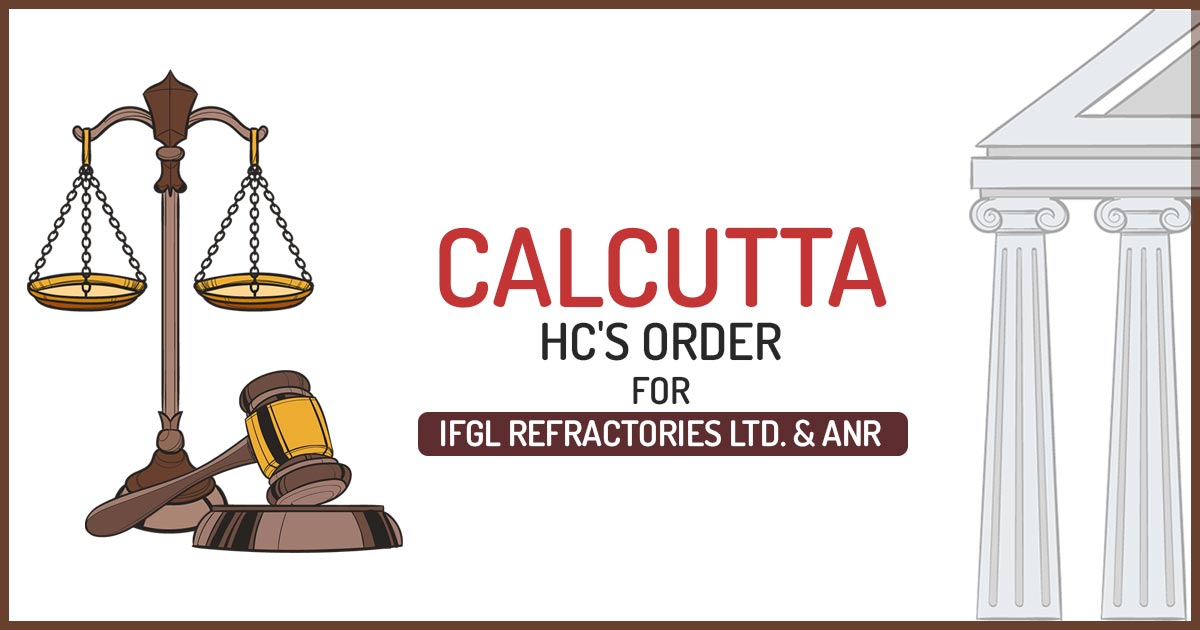
The constitutional validity of the explanation to Section 10AA(1) of the Income Tax Act inserted by the Finance Act 2017, upheld by the Calcutta High Court.
The bench of Justice Md. Nizamuddin witnessed that the principle of legal expectation does not apply to the case of the petitioner, and the explanation after Subsection (1) of Section 10AA of the Income Tax Act, 1961, inserted by amendment with prospective effect from April 1, 2018, applicable with regard to the assessment year 2018–19 and succeeding years, is constitutional, a valid piece of legislation, not arbitrary, discriminatory, and not violative of Articles 14, 19, and 265 of the Constitution of India.
Section 10AA of the Income Tax Act declares that 100% of export profit is qualified for the deduction for the initial 5 years. 50% of export profit is qualified for the deduction for the next 5 years. An amount not more than 50% of export profit is qualified for the deduction for the next 5 years.
On September 7, 2007, the petitioner, IFGL Exports Ltd., was incorporated, established its unit in May 2012 at Kandla Special Economic Zone, Gujarat, for the manufacture of specialized refractories, and commenced operations in May 2012. IFGL Exports allegedly became eligible for claiming exemption under Section 10AA of the Income Tax Act, 1961, from the AY 2013–14 onwards.
Read Also: New Audit Report Forms 10B & 10BB for Several Institutions
On April 1, 2018, an explanation was inserted after Section 10AA(1) of the Income Tax Act, 1961, by the Finance Act, 2017, from the above-mentioned date prospectively.
The applicant contested the Explanation to Section 10AA (1) of the Income Tax Act, 1961, inserted by the Finance Act, 2017, inserted with prospective effect, as unconstitutional and allegedly violative of Articles 14, 19(1)(g), and 265 of the Constitution of India.
The petitioner argued that according to the Supreme Court of India’s ruling in the case of CIT and Anr. vs. Yokogawa India Ltd., the exemption provided by Section 10AA of the Income Tax Act, 1961, can be applied to the overall income of the specific unit or venture immediately following the determination of its profits and gains.
Important: Easy Guide to TDS Provisions Under Income Tax Act 1961
This can be done without the need for prior adjustments of inter-unit profit or loss and the offsetting of carried-forward losses. Furthermore, this exemption is to be considered during the calculation of the gross total income of the qualifying venture under Chapter IV of the Act, rather than during the calculation of the total income under Chapter VI.
The petitioner emphasized that the inclusion of an explanation in Section 10AA(1) of the Income Tax Act, 1961, now mandates that the exemption provided in this section should be claimed based on the total income computed according to the provisions of the Income Tax Act, 1961.
This calculation should be carried out before considering the impact of Section 10AA, which involves adjusting inter-unit profit and loss and offsetting any carried-forward losses of the petitioner. The explanation effectively overturns the previous ruling by the Supreme Court of India in the Yokogawa case.
As a result, starting from the Assessment Year 2018–19 and onward, due to the newly added explanation, the petitioner company is no longer eligible for the exemption, or the full exemption it previously enjoyed under Section 10AA of the Income Tax Act, 1961, before the explanation was introduced.
This change is because the petitioner incurred losses from its non-qualifying unit and needed to offset those losses against the total income of the unit or venture before applying the exemption provided by Section 10AA of the Income Tax Act, 1961.
The department argued that the concept of legitimate expectations should not impede the authority of a public entity in its policymaking role, which forms the foundation of the legislative process. The legislature must consider a wide range of factors, concerns, and interests when making policy decisions or crafting legislation.
Also Read: 12 Eligible Expenditures for Assessee’s Tax Exemption List
Sections 10A and 10AA are not similar in nature, so it cannot be asserted that the Yokogawa decision had any relevance to the current case. Consequently, there was no necessity for the legislature to introduce the aforementioned explanation to bypass the Yokogawa ruling.
The court ruled that the assertion of a legitimate expectation is not valid in relation to the amendment to Section 10AA(1), as Section 10AA was designed to encourage new industries, not to provide tax concessions for existing ones.
| Case Title | IFGL Refractories Ltd. & Anr. Vs. Union of India & Ors |
| Citation | WPO 544 of 2019 |
| Date | 03.10.2023 |
| For the Petitioners | Mr. J.P. Khaitan, Sr. Adv Mr. Saurabh Bagaria, Adv Mr. Indranil Banerjee, Adv Mr. Ayush Jain, Adv |
| For the Respondents | Mr. Vipul Kunalia, Adv Mr. Soumen Bhattacharjee, Adv Mr. Anurag Roy, Adv |
| Calcutta High Court | Read Order |